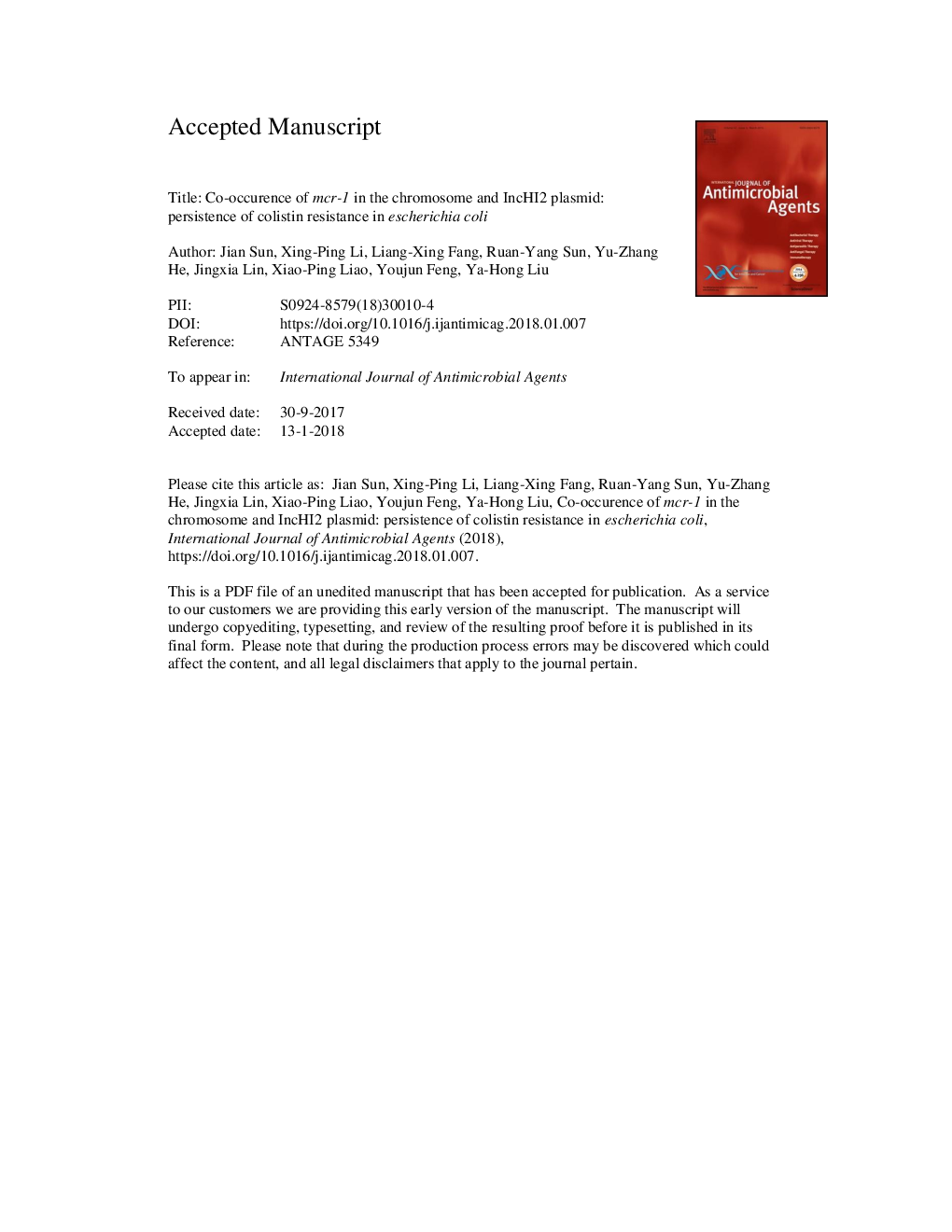| Article ID | Journal | Published Year | Pages | File Type |
|---|---|---|---|---|
| 8738505 | International Journal of Antimicrobial Agents | 2018 | 32 Pages |
Abstract
Two colistin-resistant Escherichia coli strains (FS13Z2S and FS3Z6C) possessing chromosomally encoded mcr-1 isolated from swine were characterised. Whole-genome sequencing revealed that in strain FS13Z2S mcr-1 occurred in triplicate in the chromosome with another copy encoded on a pHNSHP45-2-like IncHI2 plasmid, whereas in strain FS3Z6C only one copy mcr-1 was inserted in the chromosome. It seems likely that the triplication of chromosomal copies of mcr-1 in FS13Z2S is due to intramolecular transposition events via a composite transposon containing an mcr-1 cassette bracketed by two copies of insertion sequence ISApl1, and the pap2 gene at the insertion site was truncated by an IS1294-like element. In plasmid pFS13Z2S and the chromosome of strain FS3Z6C, only a single copy of ISApl1 was present upstream of the mcr-1 cassette. The two strains exhibited similar colistin minimum inhibitory concentrations (MICs) and featured phosphoethanolamine addition to lipid A, without regard to the copy number of mcr-1. The mcr-1-harbouring plasmid was unstable in wild-type strain FS13Z2S and was quickly lost after 7 days of passage on colistin-free Luria-Bertani broth containing 0.5% SDS, but the mcr-1 copies on the chromosome persisted. These results reveal that the single copy of mcr-1 could result in modification of lipopolysaccharide (LPS) and cause colistin resistance in E. coli. Acquisition of multiple copies of mcr-1, especially on the chromosome, would facilitate stable persistence of colistin resistance in the host strain.
Related Topics
Life Sciences
Immunology and Microbiology
Applied Microbiology and Biotechnology
Authors
Jian Sun, Xing-Ping Li, Liang-Xing Fang, Ruan-Yang Sun, Yu-Zhang He, Jingxia Lin, Xiao-Ping Liao, Youjun Feng, Ya-Hong Liu,
